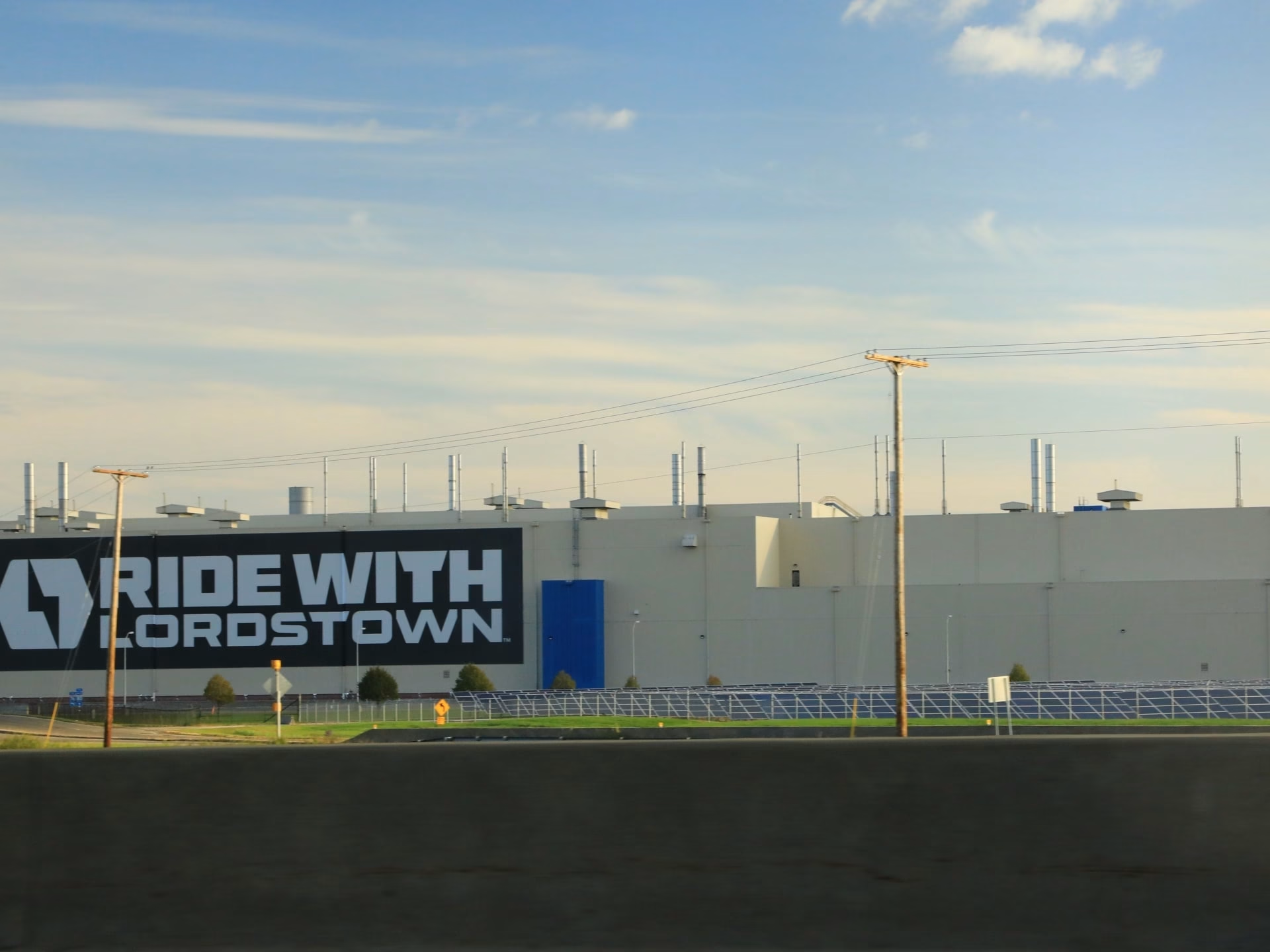SoftBank Revealed as Mystery Buyer of Lordstown Factory, Pivoting to AI Server Assembly
Lordstown, Ohio – The long-standing mystery surrounding the acquisition of the sprawling former General Motors and Lordstown Motors factory in Lordstown, Ohio, has finally been resolved. A recent Bloomberg report has unveiled SoftBank Group Corp., the Japanese technology and investment conglomerate, as the secretive buyer behind the multimillion-dollar transactions. This isn't just another change of hands for the beleaguered plant; it signals a monumental strategic pivot, transforming a site once synonymous with automotive manufacturing into a hub for artificial intelligence (AI) server assembly.
This revelation, which broke just days ago, confirms that SoftBank acquired the massive facility from Foxconn (Hon Hai Precision Industry Co.), the Taiwanese electronics giant. Foxconn itself had purchased the plant in 2022 with grand ambitions for electric vehicle (EV) production. But now? The 6.2 million-square-foot facility, sitting on 900 acres, is slated to become a critical assembly point for AI servers, directly supporting SoftBank's ambitious "Stargate" project—a collaborative initiative with Microsoft aimed at building one of the world's largest AI supercomputers. It's quite the pivot, isn't it?
The Transaction Unpacked: From EVs to AI
The deal, which involved a series of complex transactions for the factory's buildings, land, equipment, and machinery, reportedly totals around $375 million. This figure includes an $88 million base sale price for the real estate itself, with an additional $287 million allocated for the extensive equipment and machinery within. Interestingly, this represents a significant markdown from Foxconn's original $230 million purchase just a couple of years prior. It really does highlight the shifting sands of industrial real estate and the challenges in the EV manufacturing space.
Foxconn had announced the sale earlier this month, initially naming an unnamed "existing business partner" registered as Crescent Dune Partners LLC, a Delaware-based entity, as the buyer. Bloomberg’s reporting, however, pierced through that veil, revealing SoftBank as the ultimate force behind Crescent Dune. The transaction closed very recently, and here's a kicker: SoftBank plans to lease a portion of the space back to Foxconn, allowing the latter to continue some operations there. This arrangement suggests a degree of continuity, even as the plant’s primary purpose undergoes a dramatic transformation.
A Factory's Tumultuous Journey: Four Owners in Six Years
To truly appreciate the significance of this latest development, one needs to look at the factory's recent history. This isn't its first rodeo, not by a long shot. Originally a General Motors assembly plant, it was a cornerstone of the region's economy for decades. But GM idled the facility in 2019, a devastating blow to the community. Enter Lordstown Motors, the ambitious electric pickup truck startup, which acquired the plant that same year with promises of a new era of EV manufacturing, specifically for their Endurance truck. We all know how that story ended, with Lordstown Motors facing bankruptcy and eventually selling the plant to Foxconn in 2022.
So, the 2025 sale to SoftBank marks the fourth ownership change for this massive industrial complex in just six years. Think about that for a second. It's a testament to the volatility of modern manufacturing and the relentless pursuit of new economic opportunities. This facility has seen it all, from traditional internal combustion engine vehicles to electric trucks, and now, to the cutting edge of artificial intelligence.
The AI Imperative: Why Lordstown?
SoftBank's decision to repurpose an automotive plant for AI server assembly isn't as outlandish as it might first seem. The "Stargate" project demands immense scale and a robust infrastructure for assembling and housing millions of servers. Former auto plants, like Lordstown, offer precisely that: vast, high-ceilinged spaces, heavy-duty power infrastructure, and existing logistics capabilities. These facilities were built to handle large-scale, complex manufacturing processes, making them surprisingly well-suited for the intricate assembly and deployment of AI supercomputing components.
This move also reflects a broader economic trend. As the global EV market faces headwinds and some automotive manufacturing plans slow down, there's a growing appetite for repurposing these industrial behemoths for the burgeoning tech sector, especially AI and data centers. The global AI server market, for instance, is projected to grow significantly, fueling demand for exactly the kind of assembly capacity SoftBank is building in Lordstown. It's a smart play, leveraging existing assets for a rapidly expanding industry.
Implications for Lordstown and Beyond
For the Lordstown community, this news brings a mix of hope and cautious optimism. While the GM closure in 2019 led to the loss of 4,500 jobs, the new AI venture holds the potential for economic revitalization. Early estimates suggest the SoftBank operation could create between 500 to 1,000 new jobs in AI-related assembly. While not matching the peak employment of the GM era, these are high-tech, forward-looking positions that could attract new talent and investment to the region.
The shift from vehicle production to AI hardware assembly is a fascinating case study in industrial adaptation. It underscores how quickly economic landscapes can change and how former industrial powerhouses are finding new life in the digital age. What does this mean for other legacy manufacturing sites across the Rust Belt? Could Lordstown be a blueprint for their future? Only time will tell, but for now, the former auto plant is set to play a pivotal role in the future of artificial intelligence.
